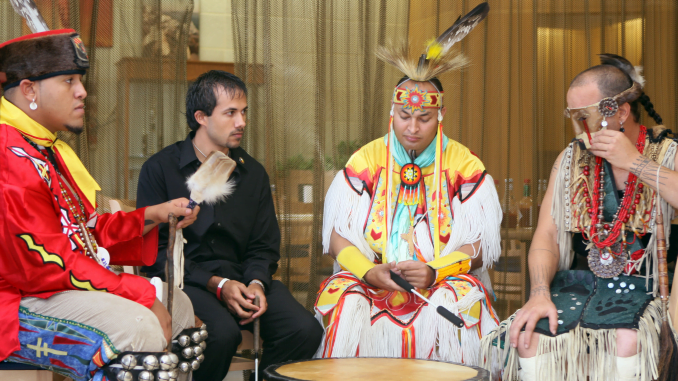
PEMBROKE — On July 25, Gov. Roy Cooper signed Senate Bill 218, a bipartisan bill giving the Lumbee Tribe greater autonomy to act as an official governing body in North Carolina. The bill passed almost unanimously in the General Assembly, with a 45-0 vote in the Senate and 113-1 vote in the House.
“What we intended to do with this legislation, and what I believe we did, is define the Lumbee in a way that allows them to receive certain benefits that otherwise they would not be able to receive,” Sen. Danny Britt (R-Robeson), the bill’s primary sponsor, told North State Journal.
Before the change, the state’s statute said that the Lumbee enjoyed rights and privileges “as citizens of the State,” but the new language says they enjoy these “as an American Indian Tribe with a recognized tribal governing body carrying out and exercising substantial governmental duties and powers similar to the State, being recognized as eligible for the special programs and services provided by the United States to Indians because of their status as Indians.”
Jarrod Lowery, a Lumbee Tribal Council member, and chairman of the tribe’s Federal Recognition Committee, told the NSJ he spent time in Raleigh working with Britt to get the language right.
“What we asked and requested from Sen. Britt was to change the state statute so the state now looks at the Lumbee Tribe not as a private non-profit, but as a local government, a local municipality,” Lowery said.
Lowery said the state of North Carolina recognizes seven Indian tribes across the state, and there is language that defines that recognition for each. The language they sought in S.B. 218 mirrors that of the Haliwa-Saponi Tribe in Warren and Halifax counties, who are recognized as a local government entity.
“Now that we’re looked at as a governing body, there are two things we’re going to be able to do that we could not do before,” Lowery said. “No. 1 is we can go after certain federal grants. Right now, the federal government has set-asides for local municipalities, for towns and counties — housing related, emergency services, health grants — and we’re going to be able to go after those grants instead of only going for grants that are set aside just for Native American Indians. And we’re really excited about that.”
Lowery described the difficulty of going through Hurricane Matthew and Hurricane Florence, and the 500 year floods that followed, without being able to access any of the funds that cities and towns were able to apply for. He said from now on, the Lumbee Tribal Government will be able to apply for these grants.
“The second big thing this will do is, when we go to a bank now, lenders really don’t want to lend to a private non-profit. But now, as a municipality, the hurdle is a lot lower. So that’s going to be a real big benefit to us,” Lowery said.
In addition to the section dealing with how the state defines the Lumbee Tribe, the bill also removes restrictive covenants from a parcel of tribal land where the Lumbee Cultural Center is held, allowing the tribe the opportunity to sell or lease natural resources from that land, and creating a trust fund for the tribe for any revenue they receive from the sale or lease of these resources.
“The tribe bought the land for the Lumbee Cultural Center back in 2013, but there were a bunch of restrictive covenants on it, telling us what we could and could not do,” Lowery said. “We as a tribe thought that the government has spent too long telling Indians what they can do with their land.”
Britt agrees, saying, “They want to be able to make modifications so they can better care for the land. They don’t want to clear cut just to put money in reserves, but they do want to do some improvements and expand on the Pow-Wow grounds, and they aren’t allowed to cut down a single tree to do that right now.”
There are currently no plans, according to Lowery, to use the natural resources on this land for revenue, but they want the opportunity to do this if that’s what they later decide. Until then, he says the trust fund will just be there in case it’s needed.
Britt, who is from Robeson County and represents the area in the state Senate, thinks the bill will be a “game changer” for the tribe and will bring funds to the area that will benefit not just the Lumbee, but the whole surrounding community.
